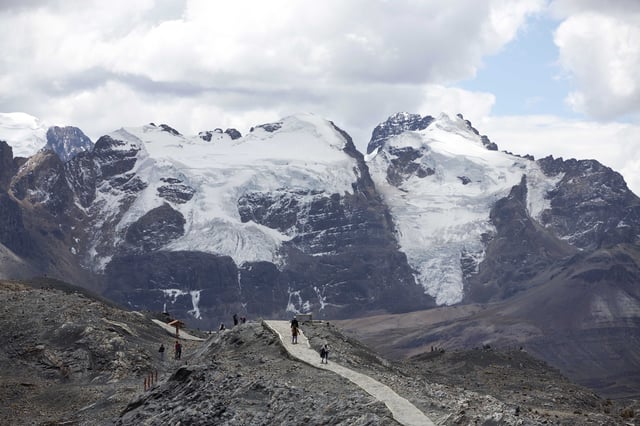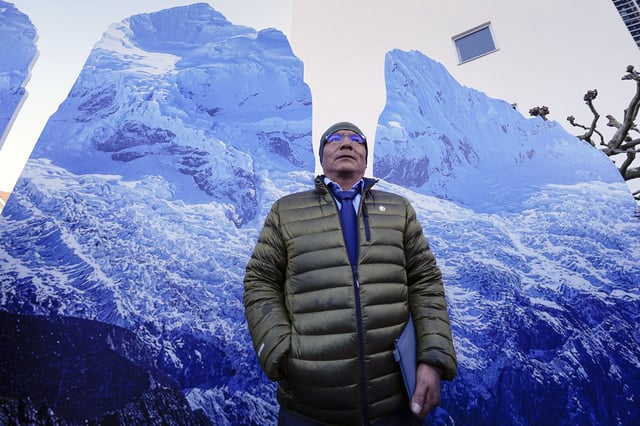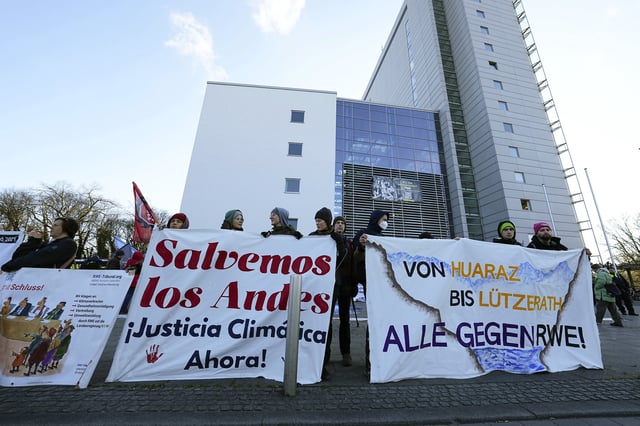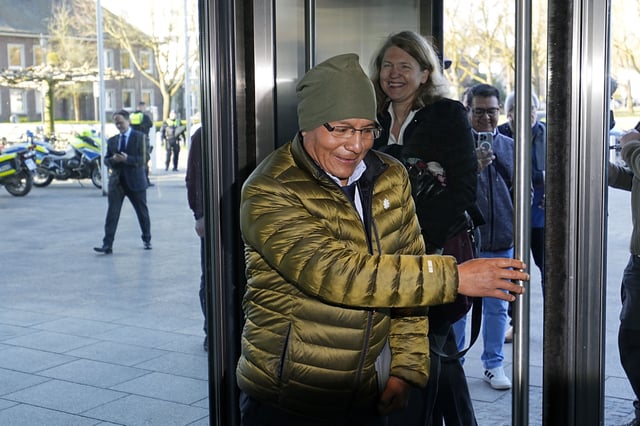Overview
- Saúl Luciano Lliuya, a farmer from Huaraz, Peru, is suing RWE, claiming the company's emissions contributed to glacial melt that endangers his home and community.
- The lawsuit seeks 17,000–21,000 euros from RWE to cover a proportional share of a $3.5 million flood defense project for Lake Palcacocha, which has swelled dangerously due to climate change.
- RWE denies responsibility, arguing that global warming is a collective issue and that holding individual emitters accountable sets a problematic legal precedent.
- The case, which began in 2015 and gained traction after a 2017 appeal, could establish a precedent for holding corporations accountable for their contributions to climate change.
- Expert reports and studies presented to the court link glacial melting in the Andes to man-made climate change, with hearings this week focusing on the risk to Lliuya's property and RWE's potential liability.



